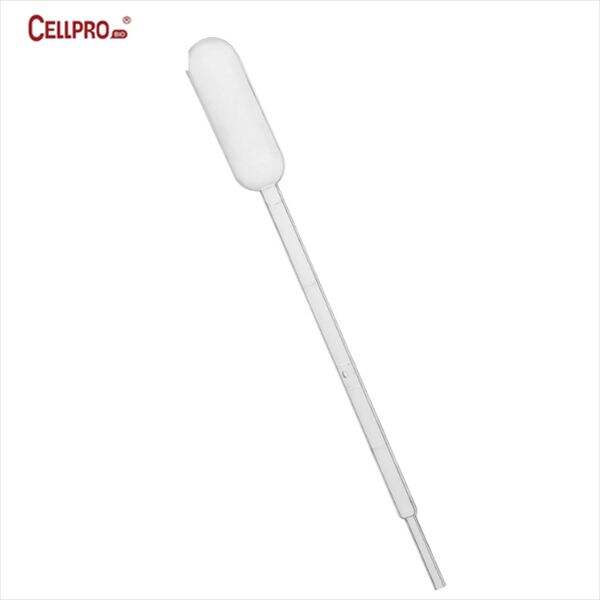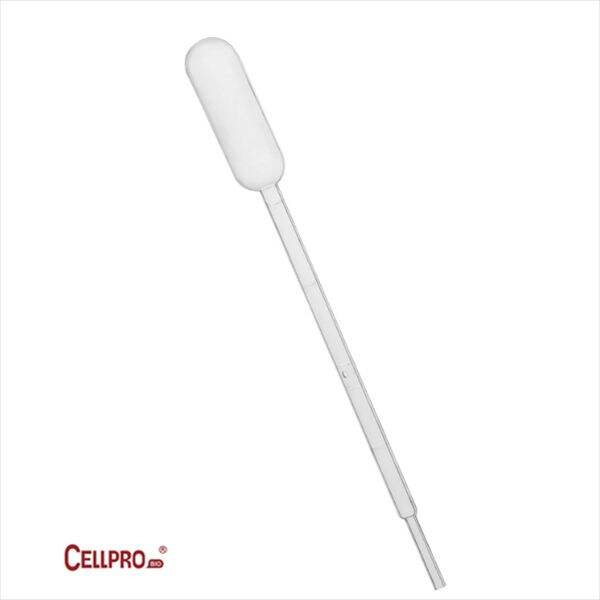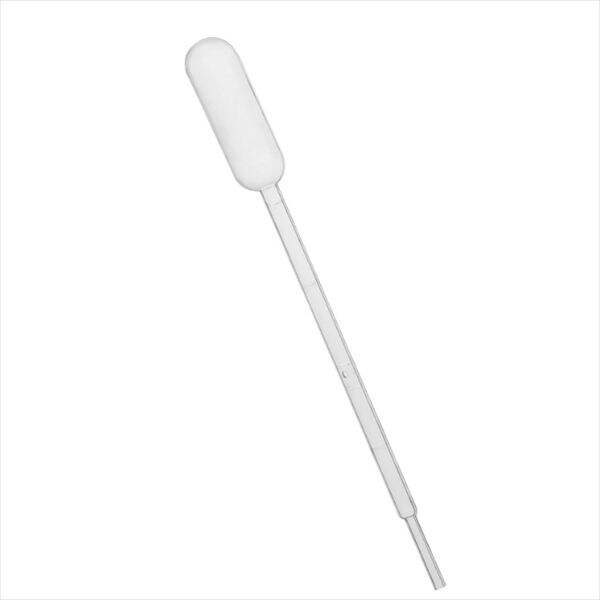Հավելի կոնց լուծում քիմիական և բիոլոգիական փորձարանների համար
Փորձարանները գիտության հետ կապված հերթական դրույթներն են, որտեղ իրականացվում է գիտական հետազոտություն։ Առաջացնելու համար տարբեր սորտի փորձարանային փորձեր՝ օրինակ, քիմիական կամ գենետիկական փորձարաններ, պետք է օգտագործել տարբեր գործիքներ և սարքեր։ Օրինակ, Պաստյուրի տարողականը՝ որը օգտագործվում է գործիք որպես տարբեր համակարգերի միջև տարածելու նման հեղուկները՝ թարմացնելով փոքր նմանները առանց անգամի։
Եթե թխարանային տարողականները են հանդիսանում تقليստական ընտրությունը, ապա պլաստմասային Պաստյուրի տարողականները նույնպես կարտացվում են և նախատեսված են որպես ցանկացած արժեք։ Գինի վերաբերյալ, պլաստմասային տարողականները շատ քիչ արժեն քան թխարանայինը։ Տարողականները գերականորեն օգտագործվում են գիտական փորձերում, ինչպես նաև բիոլոգիական և քիմիական փորձերում՝ որպեսզի հաճախ կարող լինեն փոխարինվելու անհրաժեշտությունը։
Պլաստման պիպետների օգտագործման հետ կապված առանցային արժեքավորությունը կարող է մականին խանգիրել նշանակալի դրամանշաններ երկար ժամանակի համար։ Ավելին, պլաստիկային պիպետները սովորաբար դիտարկվում են որպես միանման օգտագործման, որովհետև դրանք օգնում են կարճացնել կամավորությունները փորձարարությունների միջև։
Ինչ է ամենալավը ձեր լաբորատորիայի համար?
Գլասային թե պլաստիկային պաստուրյան պիպետների օգտագործման մասին հաճախ շատ քայքելի են քննարկում, այսպիսով, սա գալիս է անձնական նախագիծին։ Բայց մի քանի բան պետք է դիտարկեք, երբ որոշում եք ձեր լաբորատորիայի համար։ Եվ OUGH գլասային պիպետները չեն արդյոք ճշգրիտ, դրանք լավ աշխատում են այս ոլորտում՝ հավասարաչափ հեշտությունների ճշգրիտ չափումների համար։ Բայց պլաստիկային պիպետները ընդհանուրապես ճշգրիտ են հավասարաչափ հեշտությունների համար։
Ավելին, պլաստիկային պիպետները ավելի դժվար են կոտրել և կարող են օգտագործվել նորարար կամ ուսանող լաբորատորիայի տեխնիկների կողմից։ Սակայն այլ մեկ որոշում, որը վաղուցիկ է պտտվում պլաստիկային պիպետներին, սա ան전ությունն է։ Դրանք ավելի հեշտ կոտրվում են, եթե են կազմված գլասից, այնպես որ դրանք գնացում են սպառումներին և ունեն վնասի/կամավորության պոտենցիալ։
Ապա գիտնականներին՝ մտածելու մասին՝ ինչպես մեր հետազոտությունների ազդեցությունը շրջապատում վախանգում է: Պլաստիկ պիպետների հանդիսացող հատուկ հասանելիությունը ավելացել է տարիների ընթացքում, բայց վերջինս հարցերը ներկայացվել են նրանց շրջապատական ազդեցության մասին: Դրա պատճառով՝ նաև ներդրվում են պաշտոնական պլաստիկի արտադրանքների խնդիրին, որը հանդիսանում է աշխարհում անգամի և աճող խնդիր՝ քանի որ նրանք հաճախակի դիտարկվում են որպես միաօգնական արտադրանքներ։
Անհրաժեշտ է, որ կարող են իրադարձնել քայլեր միջավայրային հետազոտությունների պատճենը նվազեցնելու համար։ Օրինակ՝ հետազոտական գրասերը կարող են ընտրել բիոդեգրենելի կամ կոմպոստելի պլաստմասն սառչափներ, որոնք կրկինօգտագործելի են/կրկնակի են, կամ իրականացնել ծրագիր դրանց կրկնակի օգտագործման համար։ Ավելի նախատեսված է, որ կրկնակի պլաստմասն սառչափները կարող են օգտագործվել այնպիսի հետազոտություններում, որոնցում արդեն ստերիլացված են, և դա կհանդիսանա մեծ նպատակահարվածություն պլաստիկայի անտառության համար։

Կարող է լինել, որ բոլորը ծանոթ են Սառչափի օգտագործմանը՝ տեղափոխելով մի հեղուկ մյուսին... Նվազագույնը։ Հետեւմը պարունակում է որոշ նորարար եղանակներ պլաստմասն սառչափի օգտագործման ձեր հետազոտական գրասում՝․
Օգտագործվում է հեղուկների խորագրության ճշգրիտ խառնացման համար լիքիդ խրոմատոգրաֆիայի կիրառություններում
Հեղուկների մեջ լաբորատորիական վիդրային արտադրանքների ներսում կլինելու համար
Իդեալ է հեղուկների ճշգրիտ լցման համար միկրոտիտրացիոն սահմաններում
Լավ է սոլվենտների մի մասի մուտքագրման համար քիմիական ռեակցիաներում
Պաշտպանում են փոքր վակուումի լաբորատորիական կիրառումներում որպես սացումներ
Օգտագործվում է սպեկտրոֆոտոմետրիայի ընթացքում հեղուկներով մուտքագրման համար
Օրինակ, փոխանցել փոքր մոլեկուլներ կлетկաների կամ բակտերիաների միջև մի կոլտուրային սանդալ և մյուսը։
Իդեալ է շատ միկրո վերագրումների համար պատրաստված արտադրանքի պատասխանությանը։
Արագ միջոց փոքր քանակների ստանդարտացված լուծույթների փոխանցման համար սլայդերին։

Ընտրել ճիշտ պլաստմասային Պաստեւրի պիպետն ապացուցված հարց չէ - պետք է դիտարկեք ճշգրտությունը, ստերիլությունը, հեղուկի ծավալը և եթե ձեր մուտքագրումն այդ տիպի պիպետի հետ համապատասխանում է թե ոչ։

Եթե ձեր փորձարկումը պահանջում է ճշգրիտ չափումներ, ընտրեք տիպի պիպետներ բարձր ստեղներով և ճշգրիտ գրադուացիաներով։ Դա դեռևս՝ եթե ճշգրտությունը չէ ամենակարևոր բանը ձեր աշխատանքում (կամ պատրասխան պիպետավորում), կարող եք օգտագործել մեծ ստեղներ և գրադուացիաներ այս գրադուացված գլանների վրա։
Վերջում և չի վերջացած, բիոլոգիայի աշխարհում փորձերը մեզ ասում են, որ պիպետները պետք է ստերիլ լինեն... տրիբոլոգիայի ներառյալ! Օգտագործելուց առաջ օգտագործեք առաջնապես ստերիլացված պիպետներ կամ ստերիլացրեք դրանք պարզ եղանակներով։
Մյուս կարևոր հատկությունը, որը պետք է հիշեցնել միգուցի պիպետ ընտրելիս, դա ծավալի հարաբերությունն է: Օգտագործեք պիպետ, որը կատարում է չափումները մեկ քայլում, որպեսզի հաստատելու արդյունքները՝ գործողության համար: Վերջին խորհուրդը՝ գնում պիպետի ժամանակ նաև հաշվի առեք նյութի քիմիական համատեղելիությունը ձեր մուտքագրած նմունգի հետ: Որոշ քիմիական նյութերը կարող են վատ հատուկ փոխազդել որոշ պիպետների նյութերի հետ:
Ենթադրվում է, որ դրանք ենթարկվում են ավելի պարզ և երկարաժամկետային լուծումներին՝ գիտական փորձերի կատարման ժամանակ անտարներում: Դրանք կարող են օգտագործվել տարբեր նպատակներում ևս, իսկ աշխատանքային միջավայրից առաջացող վարունքները նաև կարող են նվազեցվել՝ պատրաստելով արդյունավետ պիպետների վերակիoriously ծրագիր կամ օգտագործելով բիոդեգրադաբլ/քիմիական համատեղելիությամբ պլաստմասներ: Ստերիլ պիպետը պետք է ունենա անհրաժեշտ ճշգրտություն, ծավալի հարաբերություն և քիմիական համատեղելիություն՝ ձեր նմունգը սովորելու ժամանակ:
գրավան մասնագետական է, սելների կուլտուրային գրավան, միկրոբիոլոգիական գրավան, ռոբոտիկական տեղեկությունների ստուգում գրավան, և այլն։ Կարող է կատարել միավորում պլաստմասային Պաստուրյան պիպետի թեստերի արդյունավետությունը՝ ինտեգրացված հետազոտություն և ստեղծություն՝ արտադրանքներ, մոդելների դիզայն և արտադրություն, պլաստմասային բարձր ճշգրտությամբ մշակում։
Բարձր ճշգրտությամբ մոդելավորման Հետազոտություն և Ընտրություն կենտրոնը կարող է ստեղծել ամբողջ պրոցեսի արտադրանքներ՝ պլաստմասային Պաստուրյան պիպետի ամբողջ գործարքի ստեղծում, մոդելների դիզայն և արտադրություն, բարձր ճշգրտությամբ մշակում պլաստմասային, պրոցեսի փոփոխություններ, բիոլոգիական ստուգում և մասշտաբային արտադրություն։
արտադրանքները ստանում են ստորագրություն ISO9001, ISO14001, ISO13485 որոշակիության համակարգերի միջոցով՝ CE FDA պլաստմասային Պաստուրյան պիպետ։
Նվազգույն որակի համար ներդրված նյութերի ներմուծումը, պլաստիկ պաստուր պիպետի համակարգի ներմուծումը՝ որակի կայունությունը ensure. CellPro առաջարկում է ավելի քան 100 ավտոմատացված արտադրանքային գործարաններ՝ FANUC ARBURG ENGEL TOYO, TOYO և այլ մարկերի ներմուծված մեքենաներով.